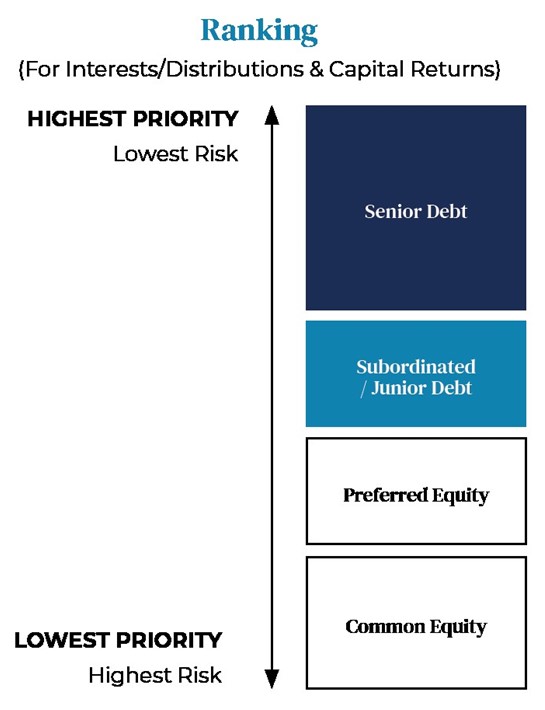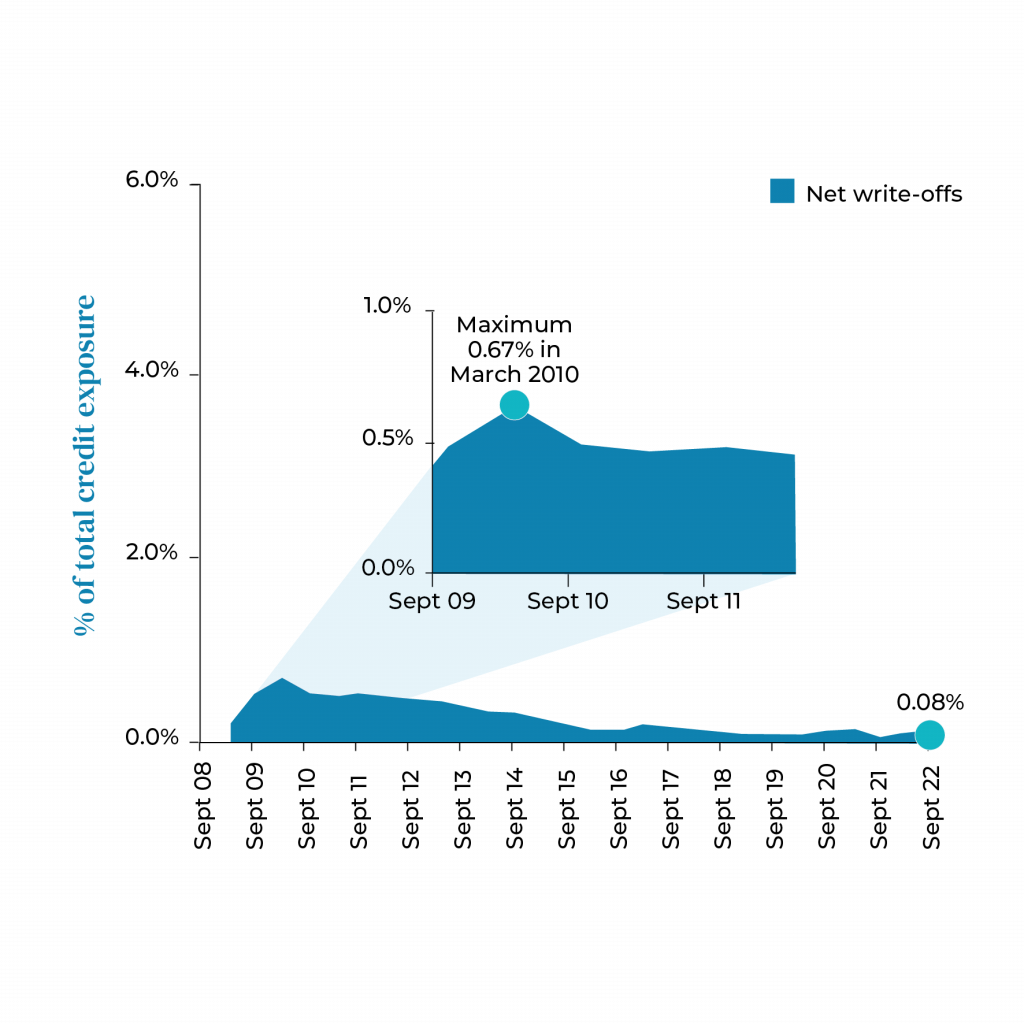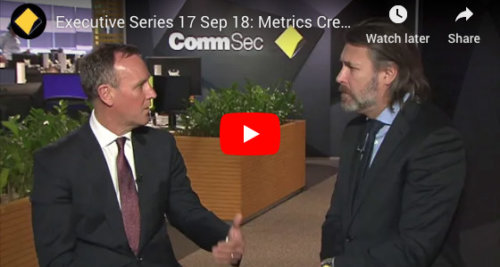Four reasons why private debt may benefit income investors
Australian private debt is among the few asset classes that offer both capital preservation and attractive risk-adjusted returns. Traditionally the asset class was only available to wholesale investors. However, in recent years, select opportunities have become available to self-managed superannuation funds and other self-directed investors in the Australian market.
Let’s take a look at four key benefits of investing in a well-managed portfolio of corporate loans – reliable income, capital stability, diversification and protection against inflation.
ATTRACTIVE, RELIABLE INCOME
Private debt can provide regular income even during periods of extreme volatility.
Interest and fee payments are received from borrowers at specified intervals under the binding terms of their debt contract. A floating base rate, with additional credit margin, ensures total interest income rises in line with market interest rates to combat inflation.
This contrasts with dividends that are paid to equity holders at a company’s discretion. Even when equity markets were at their most turbulent during the pandemic and many companies suspended or reduced dividends – well managed private debt funds continued to deliver consistent monthly income.
The asset class can provide attractive risk-adjusted returns in all market conditions. More conservative funds can deliver a return around 7% to 8%, an attractive alternative to corporate bonds, hybrids, government bonds or even cash deposits. A higher yield fund can deliver a cash distribution around 10% to 12%, a favourable alternative to investing in equities for income.
When accessing corporate loan investments through a listed investment trust (LIT) investors can benefit from the daily liquidity available via secondary market trading on the ASX. This means investors enjoy the premium income distributions associated with this asset class, without having to lock up capital for 3 – 5 years, which is the typical term of the underlying loans.
A skilled lender/private debt manager will seek to negotiate appropriate fees and credit margins to ensure investors are generating an appropriate return for risk and for the provision of non-bank debt finance to the borrower.
CAPITAL STABILITY
Another key attraction of the asset class is that it can provide capital stability through the economic cycle.
Corporate debt is a lower risk investment than equity because Australian corporate insolvency laws give priority to the interests of creditors in claims over the assets of a business.

In a private market, lenders negotiate directly with borrowers. A skilled lender/private debt manager will seek to negotiate appropriate terms and conditions, controls, reporting obligations, covenants, and security to mitigate potential risk of loss. Covenants and ongoing borrower reporting obligations provide protection and early warning of changing risks. Security held over the borrower ensures the rights and protection of capital rank in priority to shareholder equity and any unsecured creditors.
As a result of the protections in place, the corporate loan loss rates for Australian companies have been very low for many years.
Major Bank’s Historical Net Write-Offs

Source: Major Bank APS 330 reporting. As at September 2022. Past performance is not a reliable indicator of future performance.
However, all borrowers and loans are not created equal. When it comes to investing in private debt via a managed fund, it is important to invest with a manager who has the necessary skills and experience to take the steps needed to preserve investor capital and negotiate appropriate pricing with the borrower. Here’s what you should look for:
- Size and scale: To remain relevant to borrowers in the market and deliver superior outcomes for investors, private debt managers need to be large and scalable, possessing robust origination and risk management capabilities. A larger team of investment professionals’ grants managers greater access to opportunities and a broader market coverage through their pool of borrower relationships.
- Origination capability: Check the manager has direct relationships with borrowers and other market participants to directly negotiate loan terms.
- Risk management capability: A strong focus on risk management and experience in loan restructuring in the event of a default is essential to preserve investor capital.
- Track record of performance: Seek evidence that a manager has achieved capital stability and delivery of targeted income payments to investors over time.
- Diversified portfolios: A diversified portfolio helps to spread risk across sectors. Investors should look for portfolios that are diversified across borrowers and ensure the exposure to any one individual borrower doesn’t expose capital to inappropriate concentration of credit risk.
- Appropriate terms: When negotiating a transaction with a borrower, the lender must ensure they achieve appropriate terms and conditions and put in place controls to protect investor capital. These controls are designed to put constraints on the borrower to manage risk and therefore protect and preserve investor capital.
Other factors that underpin capital stability include imposing appropriate reporting obligations and taking security over the company or assets. Regular monitoring of the performance of the borrower is also critical.
DIVERSIFICATION
Many fixed income investments don’t deliver the safe haven and downside protection they once did. Bonds no longer rise as equities fall, making ‘balanced portfolios’ a lot less stable in times of turmoil.
Private debt has a low correlation with other major asset classes, including growth assets such as equities and property, as well as other fixed income products such as bonds, providing excellent diversification opportunities.
Because private debt aims to deliver reliable income and reduced capital volatility throughout the economic cycle, it can be an asset to your portfolio when other markets are volatile.
We believe the best way for investors to access private debt is through a low cost and well diversified managed fund, which helps to spread risk by investing in a varied range of sectors, loan types, and borrowers with differing credit quality and maturity profiles.
PROTECTION FROM INFLATION
Inflation poses a threat to investors because it chips away at the purchasing power of savings and investment returns. It can be particularly damaging to returns on fixed income investments such as bonds.
Private debt offers protection against inflation because corporate loans earn their returns from fees charged to borrowers and interest that is generally charged at a floating rate. The interest on Australian corporate loans is usually structured as an additional margin over the benchmark Bank Bill Swap Rate (BBSW).
The BBSW is essentially the rate at which Australia’s major banks are willing to lend short term money to other banks. It reflects not only the current level of the RBA cash rate but also the expectations the banks have of future cash rate settings.
So if interest rates rise, your income should also rise, which acts to protect the capital of your investment.
Other News
Metrics Income Opportunities Trust (ASX: MOT) | Investor Information
Metrics Income Opportunities Trust: income today with upside potential Metrics Credit Partners CEO and Managing Partner Andrew Lockhart recently spoke…
Metrics Master Income Trust (ASX: MXT) | Investor Information
Metrics Master Income Trust (ASX: MXT): disciplined income through diversified corporate lending Metrics Credit Partners CEO and Managing Partner Andrew…
INSIGHTS
MCP Income Opportunities Trust (MOT) lists on ASX
Sydney, 29 April 2019: The Trust Company (RE Services) Limited (ABN 45 003 278 831) (Responsible Entity) is the responsible…
MCP Master Income Trust wins Lonsec Listed Fund Award
The award came a year after MXT was listed on the Australian Securities Exchange





